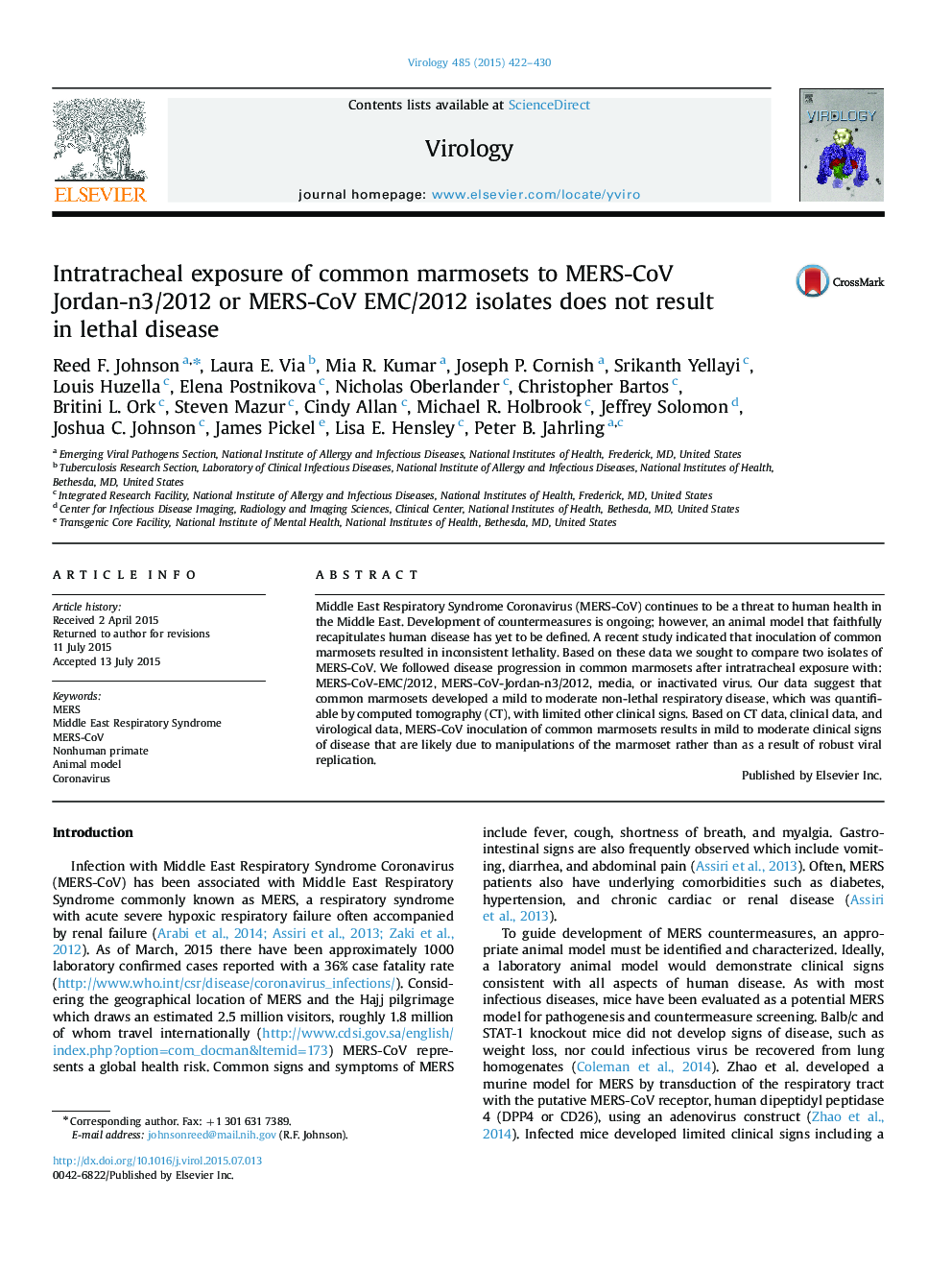| Article ID | Journal | Published Year | Pages | File Type |
|---|---|---|---|---|
| 6138991 | Virology | 2015 | 9 Pages |
Abstract
Middle East Respiratory Syndrome Coronavirus (MERS-CoV) continues to be a threat to human health in the Middle East. Development of countermeasures is ongoing; however, an animal model that faithfully recapitulates human disease has yet to be defined. A recent study indicated that inoculation of common marmosets resulted in inconsistent lethality. Based on these data we sought to compare two isolates of MERS-CoV. We followed disease progression in common marmosets after intratracheal exposure with: MERS-CoV-EMC/2012, MERS-CoV-Jordan-n3/2012, media, or inactivated virus. Our data suggest that common marmosets developed a mild to moderate non-lethal respiratory disease, which was quantifiable by computed tomography (CT), with limited other clinical signs. Based on CT data, clinical data, and virological data, MERS-CoV inoculation of common marmosets results in mild to moderate clinical signs of disease that are likely due to manipulations of the marmoset rather than as a result of robust viral replication.
Related Topics
Life Sciences
Immunology and Microbiology
Virology
Authors
Reed F. Johnson, Laura E. Via, Mia R. Kumar, Joseph P. Cornish, Srikanth Yellayi, Louis Huzella, Elena Postnikova, Nicholas Oberlander, Christopher Bartos, Britini L. Ork, Steven Mazur, Cindy Allan, Michael R. Holbrook, Jeffrey Solomon,
